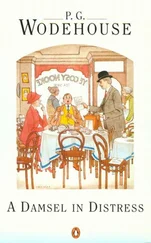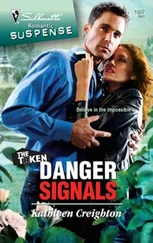The sailors — minus Ralph Parkiss, who hadn’t returned so far from his twin errands at Dry Manston — were undiscriminating with the snow. They pelted cats and confidants and strangers. Their play was cruel and jealous. The Norrises who were walking to evensong beneath a tempting umbrella were struck a dozen times until someone succeeded in separating Robert from his hat. They didn’t snowball Captain Comstock, though. Led by George, with a lantern on a pole, he walked a dozen yards behind the slowest of the crew, with Alice Yapp on his arm. The captain was too self-absorbed to pay attention to his men or make snowballs of his own. If he threw snowballs now, then someone’s head would break. He was unsettled by the mocking logic of the ship’s horn on the land and all the fish nets dragged through snow, uphill. He half expected to find the Belle perched on the summit of the ridge in a saltless sea of snow, with its flags invisible on such a starless night and its rigging trimmed in white and not a chance that they would reach America again unless their ship would fly.
The preacher took his text from the Very Reverend Alfred Sleigh-Russell’s Ornithologia :
All birds migrate, if it be only half a mile or so. For though the friendly sparrow does not range the oceans as does an albatross, he has good cause when it is cold or there is competition for one meal or there are cats, to move away from home, which is the wood or field where he was hatched. But when the cat has gone, or else the warmer weather manifests, he must go back to whence he came, just as the albatross, though he may fly ten thousand miles, must navigate each spring to his cold islands in Antarctica. For birds, like men, are allocated places on this earth to which they must return or perish, by the Almighty to Whom they will return for All Eternity or else will perish in the Fires of Hell.
The book was closed. The Bible was not touched. The preacher prided himself on his earnest eccentricity and the directness of his homilies. ‘We have amongst us strangers, far from the woods and fields where they were hatched; exotics amongst indigenes,’ he said. Mr Phipps did not approve of pulpits. He walked through his congregation with his hands behind his back, like a factory overseer. ‘My brothers and my sisters, look around at unfamiliar faces.’ He waited while Americans and Wherrytowners inspected each other, while sailors tried to catch the eyes of fishermen’s daughters, while Captain Comstock and Alice Yapp touched hands beneath her shawl. ‘You might recall that there were egrets on the beach in June, brought in from Spain by hot winds. And now we have with us sailing brethren from America brought in by colder winds. And also two young people here …’ (he placed his hand on the bonnet of cream terry velvet that covered Katie Norris’s hair) ‘… who are embarked upon their own migration westwards to the shores of Canada. The seas tonight are full of fish whose journey takes them to the east. And there are nets to bless for our own fishermen who, when the Sabbath horn is blown, will take to boats. God’s creatures all are journeying, alone, in shoals, by sea, by foot, by air, and with God’s blessing. May all His children travel safely in the world, and may they all come home again to die in Christ where they were born in Christ. Amen.’
He spoke a little of the Soul, and of the body too. But what he did not mention was the heart. And here in his congregation were a hundred hearts, in love, or grieving, or resentful, or simply fearful of the midnight fish, or palpitating with the guilt of failing to be saints. There were no paragons. Were Mr Phipps to go round as his congregation sang its final hymn (‘Our Home in Thee, Our Lord’) and place his hand upon the hair and hats of thieves and adulterers and bullies and those who failed to love their neighbours as themselves, then there wouldn’t be a head untouched. But what about those absentees, Aymer Smith and Otto? If they had been amongst the congregation, perhaps the preacher’s hand would hover at their heads and hesitate to touch. Otto was untouchable, as Preacher Phipps had found out in the tackle room the day before. Was he a bully? An adulterer? A thief? Was he a paragon? How could anybody tell? And Aymer Smith? It could not be said he was a thief. He didn’t covet anything enough. Nor an adulterer; he was a celibate. Nor much of a bully; he was too tall and flimsy both in manner and in build. He even loved his neighbours as himself, because he didn’t love himself at all. Nor was he loved by anyone. And he was hated by a few. The preacher wouldn’t touch that head.
BY NOW, in the last hundred yards through Wherrytown, Aymer Smith and Ralph Parkiss were far too cold to speak. Their six-mile walk had been ten miles. They’d faltered in the snow and dark, misled by the preacher’s foghorn into believing that the sea had moved inland and they were lost. They’d had to trust Whip to set the path. At last they’d seen the harbour light and found the inn courtyard where the tackle room, its door left open all day, was piled with drifting snow. The covered alleyway offered their first shelter from the night. All they wanted now was a fire, some dry clothes and Mrs Yapp to fortify them with her tea against the influenza which Aymer promised would justly follow on from such ‘a foolish expedition’. The inn was empty, though. And cold. Just like a ghost ship. They rang the handbell in the parlour a dozen times, but no one came. They searched the rooms. Aymer would have changed into warmer clothes, except his bags and books and clothes were gone and his bed was stripped. He felt a little stripped himself, and liberated too, of home, possessions and proprieties. He even put his arm round Ralph’s big shoulders and called him ‘Friend’. They had been friends — if silent friends — as soon as they had swayed the Cradle Rock.
Ralph managed to coax the parlour fire alight. He knelt in front of it and toasted herrings from the kitchen for their supper. Whip fell asleep at once across the hearth. Aymer did his best to dry himself in the low heat. He smelled of smoke and herrings, and the smell spread through the empty levels of the inn. It was Ralph who guessed that everyone had gone to chapel. The pair of them chuckled like boys; to have escaped the hymns was almost worth the journey. They would be comrade-masters of the inn, until the captain and his men came back to find the meddler Smith and the dog returned and not fled on the Tar . But not a trace of Otto. Where is he now? Why did you let him go? would be the only questions to be asked. But there were deeper mysteries in Otto’s first night out. What comforts would he find in snow? What would he have for supper? How would he reach his allocated place on earth and die where he was born, Amen? How joyous was he to be free?
AYMER SMITH had fled the smoke and herrings of the parlour. (‘My chest and throat are raw, Ralph. My nose already is a tap. I shouldn’t be surprised if I were feverish by breakfast time.’) He was sleeping, fully clothed, on his sheetless bed. Whip, exhausted by the snow and cold, curled at his side, her nose tucked in between her legs. She didn’t know or care that Aymer was (brother Matthias’s judgement, endorsed by faithful Fidia) a blunderer, a bore, a hypochondriac, a meddling and self-serving man. She had adopted him.
Robert and Katie Norris hadn’t waited at the chapel door to shake the preacher’s hand. They had returned from evensong ahead of Mrs Yapp and all her other guests. They hurried through the parlour, nodding briefly at Ralph Par-kiss by the fire, took a lighted candle from the mantel, and almost ran along the corridor and down the flights of steps to what they thought would be an empty room. They hadn’t come out of the chapel edified by hymns or by Mr Phipps’s passages from Ornithologia , but impassioned rather by the holy, warming congruence of worshippers at church, their thighs in contact on the pew, their two thumbs touching on the shared hymnal, their voices mating when they sang.
Читать дальше












